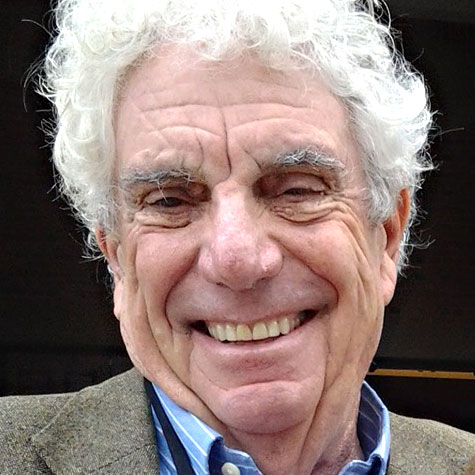After visiting a Los Angeles public charter high school where mostly poor and working-class young people receive an education, I went home and turned on
the Democratic presidential debate and saw that the subject of public schools was hardly mentioned.
I wasn’t surprised. Although improving our public school system would help our nation bridge our country’s growing income gap, it has virtually escaped attention in the presidential campaign. It’s a huge omission. Where else will we get the well-trained young men and women needed for an economy so complex and technically oriented that the uneducated are lost souls?
I write about education a lot because it’s important for the Jewish community to have a strong public school system. Education is part of the Jewish culture. Many Jews can’t afford private schools, and their kids deserve an education good enough to send them to college. Moreover, strong public schools are good for everybody, Jews and non-Jews.
That’s why I visited the Los Angeles Leadership Academy, one of 128 Los Angeles charter schools, at the invitation of the founder and executive director, Roger Lowenstein. He is a former criminal defense attorney with clients ranging from New Jersey mobsters to political left-wingers. In his varied career, he also was a writer for the television show “L.A. Law.”
Charter schools are publicly financed, smaller schools free of most of the district and state rules. They are usually started by teachers, parents, activists or entrepreneurs. Their backers believe they provide a better education than the traditional big schools because of smaller class size, more attention to each student and greater freedom to use innovative teaching methods.
In Los Angeles, they range from elementary schools, such as Westwood Charter, to schools specializing in science, art and other areas. Most are in poor neighborhoods, and were started in response to the failure of the traditional big Los Angeles Unified School District schools to educate African American and Latino youth.
We walked through the school, located in a three-story building that once housed the Florence Crittenton Center, a residence for abused and neglected girls and unwed teen mothers and their infants, located in Lincoln Heights, northeast of downtown Los Angeles.
The academy has two campuses, the high school in Lincoln Heights with 200 students and a middle school in Koreatown with an enrollment of 210.
Lowenstein’s liberal view of society shaped the Los Angeles Leadership Academy’s direction. The academy’s population is largely Latino, with a few Asian, black and white students; its goal, in addition to giving them a good education, is to encourage the students to be community activists, which is not hard to do in Lincoln Heights, neighborhood that supplied large numbers of young people for the marches in support of immigrants.
School was out, but a few students were working on projects or finishing up in class. The nicely painted halls looked and smelled clean. The cafeteria, its crew done for the day, was inviting, with restaurant-quality stoves behind a granite counter.
The school’s dropout rate is small, Lowenstein said. There is one teacher for every 16 students.
“We don’t let a kid fail,” he said. In fact,half the students go on to four year colleges and the rest to community colleges.
The students are poor. All are on the free-lunch program. There is an active parents council, and parents must volunteer three hours a month. They like the school, Lowenstein said, because classes are small and the place is safe.
We visited teacher Mark Campbell’s ninth grade English classroom. On the wall were posted words for the students to use. Some of them: implacable, paroxysm, terminate, flout.
Lowenstein was active in the civil rights movement, and he sees the school as a continuation of that cause. “If you were a political activist in the ’60s, like many of us were, we thought if we hopped on a bus to Mississippi, things would be OK,” he said. But, he said, that was “just a first step. For those of us who want to take another step, education is the civil rights movement of our time.”
In other words, the civil rights movement secured legal rights for ethnic minorities, but that wasn’t enough. Voting rights and school desegregation don’t mean much without a good education.
Jews were leaders in the first civil rights movement. Their knowledge, experience and political clout is badly needed in this second phase, improving the public schools.
There are many obstacles.
Innovative charter schools face the hostility of teachers’ union leaders, who object to the charters’ insistence on less restrictive rules and on the power to fire failed teachers.
The Los Angeles school district is resistant to change. Its bureaucracy suffocates new ideas
Most important, money is short. The cost of the Iraq war is now far more than $1 trillion and increasing at $300 million a day, according to congressional staff estimates. With the economy sinking, more federal funds will be needed to bail out homeowners threatened with foreclosure and to try to stimulate consumer spending. With the faltering economy reducing state revenues, Gov. Arnold Schwarzenegger has proposed reducing state funding for elementary, middle and high schools and community colleges by $400 million in the current year and by $4.3 billion next year.
Yet talk of this crisis hasn’t made it to the presidential campaign. Jews know how to make themselves known on important issues. This is the time to do it.
Until leaving the Los Angeles Times in 2001, Bill Boyarsky worked as a political correspondent, a Metro columnist for nine years and as city editor for three years. You can reach him at bw.boyarsky@verizon.net.























 More news and opinions than at a Shabbat dinner, right in your inbox.
More news and opinions than at a Shabbat dinner, right in your inbox.